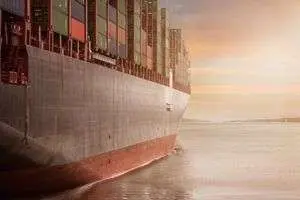Global shipping giant pursues ammonia and biofuel for decarbonisation

Shipping companies are looking for solutions to make their voyages emission-free. Hydrogen, biofuel and ammonia are considered some of the options to power vessels.
Maersk, the Danish global shipping giant which operates container shipping line and vessels, has unveiled its plan to launch the world’s first carbon-neutral liner vessel in 2023.
Maersk has brought forward the launching date for this new ship by seven years, which was initially envisaged for 2030. The schedule change has probably been triggered by its plan to cut 60% of emission from its shipping lines by 2030 and full carbon neutrality by 2050. It plans to power its new 2,000 TEU (twenty-foot equivalent unit) vessels on bio-methanol or e-methanol, although it can use very low sulfur fuel oil (VLSFO). Some of the other future fuel options it is considering include ammonia, methanol and alcohol-lignin blends.
Maersk told H2 Bulletin, “This [the vessel] will be a newbuild. The concept design is finalised, and we are currently in discussions with equipment suppliers and yards. It is crucial to find the right partners who are ready to engage in development resources into such a step change of the industry.”
Maersk also revealed, yesterday (24th February), its plan to build a green ammonia plant in collaboration with Copenhagen Infrastructure Partners (CIP). The partners will build the Power-to-X-facility in Esbjerg, Denmark, using wind energy from offshore as a power source to produce green ammonia.
The production facility is expected to have electrolysis of around 1GW, expected to reduce about 1.5 million tonnes/year emissions. The ammonia will be then used as green ammonia in the agriculture sector and fuel for the shipping industry. The heat from the plant will capture and supplied as a heat source for the local household. Other collaborators joined Maersk and CIP include DLG (farm supplier), Arla (dairy products producer), Danish Crown (pork producer), and DFDS (shipping company).
